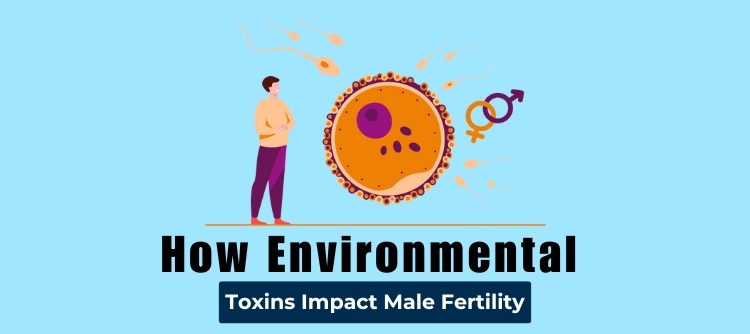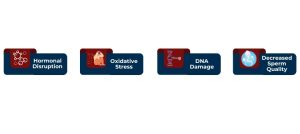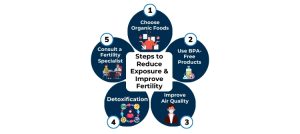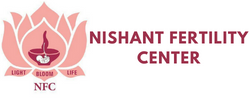How Environmental Toxins Impact Male Fertility

Environmental factors play a significant role in reproductive health, and male fertility is no exception. With rising levels of pollution, exposure to various toxins, chemicals, and pollutants has become a growing concern. These environmental toxins can negatively affect sperm quality, quantity, and overall fertility, impacting the chances of conception. In this blog, we’ll explore how these toxins influence male fertility and what can be done to mitigate their effects.
Types of Environmental Toxins That Impact Fertility
Several environmental toxins can harm male reproductive health, including:
1. Heavy Metals: Lead, mercury, cadmium, and arsenic are some of the most dangerous heavy metals that can impair sperm production and function. Exposure to these metals can come from industrial pollutants, contaminated water, and some household products.
2. Pesticides and Herbicides: These chemicals are commonly used in agriculture to protect crops from pests and weeds. However, prolonged exposure, especially in men working in agriculture or those consuming non-organic produce, can lead to hormonal imbalances and reduced sperm motility.
3. Phthalates and BPA: Found in many plastics, these endocrine-disrupting chemicals can interfere with testosterone production and affect sperm quality. BPA (bisphenol-A), in particular, has been linked to lower sperm concentration.
4. Air Pollution: Particulate matter and other pollutants in the air can contribute to oxidative stress, damaging sperm DNA and leading to fertility problems. Studies show that men living in highly polluted areas have a higher risk of reduced sperm counts.
5. Radiation: Exposure to radiation, whether from medical treatments, occupational exposure, or even excessive use of electronic devices, can damage sperm cells and reduce fertility.
How Do These Toxins Affect Male Fertility?
The primary ways environmental toxins impact male fertility include:
• Hormonal Disruption: Many toxins interfere with the body’s endocrine system, particularly by disrupting testosterone levels. Hormonal imbalance can result in poor sperm production, lowered libido, and erectile dysfunction.
• Oxidative Stress: Toxins often increase the production of free radicals in the body, leading to oxidative stress. This damages sperm DNA, reduces sperm count, and negatively affects sperm motility.
• DNA Damage: The sperm’s genetic material can be damaged due to exposure to environmental toxins, which may lead to miscarriage or congenital disabilities.
• Decreased Sperm Quality: Toxins can affect the structure, shape, and motility of sperm, making them less likely to fertilize an egg successfully.
Steps to Reduce Exposure and Improve Fertility
While avoiding environmental toxins entirely is nearly impossible, there are steps men can take to minimize exposure and improve their reproductive health:
1. Choose Organic Foods: Opting for organic produce can help reduce exposure to harmful pesticides and herbicides.
2. Use BPA-Free Products: Switch to glass or stainless steel containers and avoid plastics, especially for food storage.
3. Improve Air Quality: Use air purifiers at home, and consider wearing masks in highly polluted environments.
4. Detoxification: Engaging in practices like regular exercise, drinking plenty of water, and consuming antioxidant-rich foods can help detoxify the body from harmful substances.
5. Consult a Fertility Specialist: If you’ve been exposed to harmful toxins and are experiencing fertility issues, seeking professional help is essential. Specialists can provide targeted treatments to improve fertility outcomes.
Related- Lifestyle Changes to Improve Male Fertility

Conclusion
Environmental toxins are a growing concern in today’s world, with far-reaching effects on male fertility. Men who are trying to conceive must be aware of these risks and take active steps to minimize exposure to harmful substances. By making informed lifestyle changes and seeking expert guidance, it’s possible to protect reproductive health and improve fertility outcomes.
For those looking for male infertility treatment in Jaipur, Nishant IVF Care offers comprehensive care and solutions to address fertility challenges. As a leading IVF center in Jaipur Rajasthan, we are committed to providing the best possible support for couples on their journey to parenthood.
